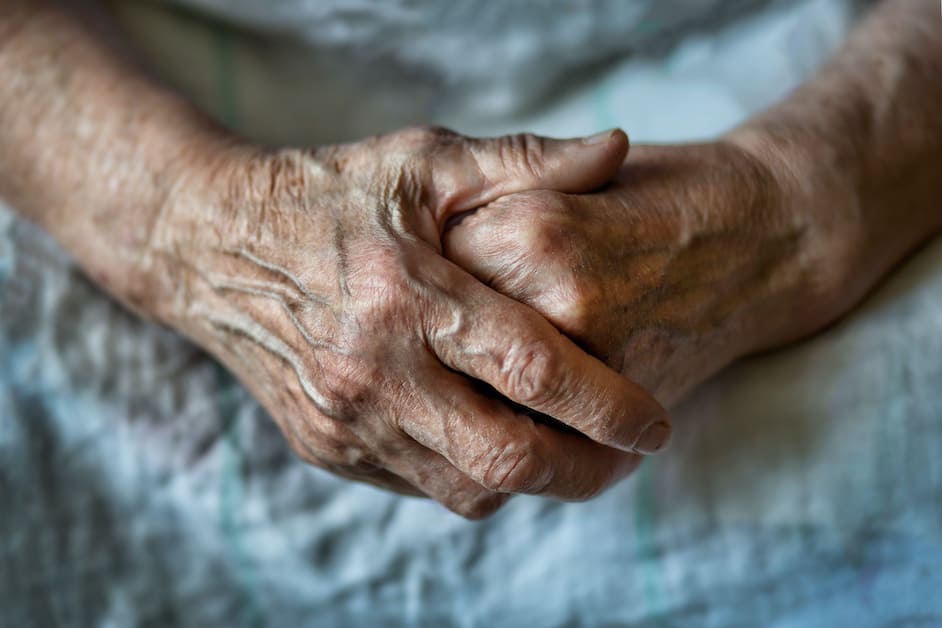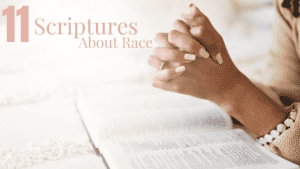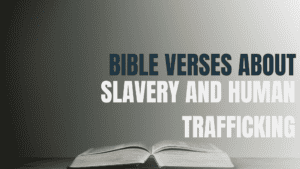Elderly Abuse: Less Popular, Equally Devastating
I’ve been a long-time Pro-Life advocate, but it wasn’t until I witnessed my grandmother’s neglect that the issue of elderly abuse became a genuine concern. Seeing the damage, and reflecting on my response to it, opened my eyes to the topic. It also educated me on the potential of my own heart to discount the life of another human, based on the convenience of their existence.
My Grandmother
My grandmother was an extraordinary, snow-white haired woman. She had triumphed over a lot in her lifetime. As a teenager, she had escaped an abusive home and eloped with the love of her life. In her mid-life, she became a nurse while raising her two children, mostly alone after her husband passed away unexpectedly.
She chose to stick out her marriage to her second husband, an alcoholic and ex-marine, who she took care of, without complaint, after a stroke left him paralyzed on one side of his body. Shortly after, she fought and survived a terrifying bout with breast cancer.
In her elderly years, in-between cooking for a slew of grandkids, she rescued animals. She mothered a clowder of abandoned cats, an injured hummingbird, and a basset hound. She was convinced the hound could say “mama” if he tried hard enough.
Her Devastating Decline
Her dementia was sudden and aggressive. When I left to attend university, she was bright-eyed, energetic, and her mind was sharp. When I came back, her eyes were distant, she would answer any comment or question with “yup” no matter the context, and she failed to recognize most people who came to visit her.
Although her children did their best to hide all the family drama from us grandkids, we’d pick up, here and there, the tail ends of conversations. We eventually learned that my step-grandfather— now, a wealthy ex-alcoholic —refused to spend the money needed to give my grandmother proper care. He was dead set on leaving a good inheritance for us, his grandchildren, in collectible coins.
Elderly Abuse at the End of Life
My Grandfather
Although half-paralyzed from the stroke, he was independent and able minded enough to remain the legal caretaker for my grandmother. Eventually, he decided to hire a few random women from his local grocery store as caretakers for my grandmother. Valuable items came up missing, and my grandmother had strange reactions to specific caretakers, as though she didn’t trust them or was afraid of them. My grandfather called her crazy.
Our family struggled against my grandfather for several years until we received a horrifying call. Mammaw, as we called her, had been hospitalized with extreme dehydration, a result of being left in her bed for three days without food and water.
After that, her mental and physical health plummeted.
My grandfather preached about how the value of silver goes up during an economic crisis, which is why he made all of us grandkids promise we’d wait long after he was gone to cash in his coin collection.
Bitterness On My Grandmother’s Behalf
Eventually, my grandmother passed away. The battle was over, but the bitterness stayed with me. There were a billion silver coins in the world, but I only had one Mammaw. In my mind, my grandfather took away what I loved, to give me what he loved, and I hated him for it.
My parents, both being Christian ministers who understand the value of walking in forgiveness, tried hard to give my grandfather the benefit of the doubt. They said it was the stroke that changed him, that providing for us was his way of showing how much he loved us. Their forgiving him made me even more irritated.
When it came time for him to pass, I didn’t visit him. I sat in the hospital waiting room as our family took turns going to say their goodbyes, and I felt nothing. Because of what he had done to my grandmother, and by proxy me, I already counted him as dead.
The Beast of Bitterness
One night, while in prayer, the memory of my grandfather resurfaced. Without thinking, my face contorted into an angry snarl. Catching myself, I was horrified. It was as though the memory of him was calling up some ferocious beast inside me that was vengeful and hateful, and manifesting outwardly through my face.
Wickedness, in its many forms, is like a disease. Pride, lust, greed can spring up in us like a genetically endowed cancer, but it can also be contracted from an outside source: trauma, abuse, life experiences— these things plant seeds of bitterness that grow into hate, envy, and wrath. The Bible likens such things to rot within the bones.
“A tranquil heart gives life to the flesh, but envy makes the bones rot.” Proverbs 14:30 (ESV)
How Do You Forgive the Unforgivable?
Forgiving Elderly Abuse
I like to imagine that, before I forgave my grandfather, God was patiently waiting for me to come around. He was like a parent, gently knocking their child’s bedroom door after they came home from school with mysterious bruises and scrapes.
I was hurt, and I hid away with all my pain to excuse me from having compassion for my grandfather in his own time of need. But at that moment, I realized that if hate in the heart is just as evil as murder, then I had committed the same crime as my grandfather. He discounted my grandmother, so I discounted him.
In that quiet moment with God, without saying a word, He allowed me the truth about what I was becoming, and how I could change it.
Realizing how nasty and spiteful I was, I broke down and repented. I knew I still didn’t have the desire to forgive, so I offered God what strength I had.
“I don’t want to forgive.” I told God, “I don’t even want to want to forgive, but I don’t want to be this either. Can you give me a heart that wants to want to forgive?”
And He did.
God’s in the business of taking damaged creatures like myself, like my grandfather, and making us human again. The trick is, we have to let God do His work in us, even if it means enduring the pain of spiritual heart surgery. Forgiveness, particularly that of ourselves, can be excruciating. Thus, we should also be patient and gracious towards others who haven’t yet been able to walk in forgiveness.
I had been blind to this truth when my grandfather was alive, but a few months later, I would find the driving force behind his abusive actions.
Life After His Death
After his death, the silver coins and my grandfather’s personal belongings were released to my family. Among the items were various veteran paraphernalia, an old camera and photo collection, a variety of family quilts, and a mangy raccoon taxidermy that used to terrify us as kids.
I inherited the old camera that my grandfather purchased and used in Vietnam. My brother inherited all of the photos that were taken with the camera, as well as the raccoon. The latter now sits on my brother’s shelf, where it continues to terrify children, to this day.
To my brother’s credit, he was always more sensitive towards my grandfather. Little did I know, my grandfather had shared more details of his life with my brother. The man I remembered as a heartless old grump who abused my elderly grandmother, my brother knew as a brutally scarred victim of war.
One evening, I sat at my brother’s house, and he filled me in on the details.
The Shocking Truth About My Grandfather
Elderly Abuse Begins in the Heart
Papaw, as we called him, had served in the 1st battalion, 9th marines. They were nicknamed “The Walking Dead” and for a good reason; they had the highest casualty rate in Marine Corps history. His battalion was present at Operation Buffalo, which is known as the dearest day for marines in the entire Vietnam war.
On that day, opposing forces used flamethrowers to force Papaw’s battalion into the open, where many of them were brutally slaughtered.
My grandfather had carried survivor’s guilt his entire life, and even confessed that he felt as though he shouldn’t be alive.
I couldn’t help but wonder, did that deep hurt turn into bitterness, as it had in me? Was that why he was so numb towards our family’s pleas and so ready to surrender the life of my grandmother?
The photos my brother inherited made the stories even more real. They revealed the history that built my grandfather. He had captured everything from fields of dead bodies to precious moments of his young grandchildren.
After taking the time to consider who my grandfather was, and why he was how he was, I saw the truth. In his mind, when he neglected my grandmother, he was making the tough call, giving the marching orders to a band of warriors he knew wouldn’t return from battle— his life, and that of my grandmother was a suicide mission on his family’s behalf. Although severely misguided, he attempted to save us from what he saw as an impending war.
The Truth About Human Value
It was forgiveness that allowed me to understand my grandfather and his view of human life clearly. When you see someone as a lost cause, it’s easier to justify letting them go.
We assume that losing battles aren’t worth fighting. But we’re wrong.
The value of human life can’t be measured by time or potential. Every human being is unique and valuable. Most importantly, they are irreplaceable. When they are gone, there is a them-sized hole left in our world, in ourselves, that never gets filled.
Life is precious because it is fleeting, and we, people who lose bits of ourselves with each life lost, should cling to whatever preciousness we have left of those who are preparing to leave us.
A human life isn’t valuable because they can live more. Every human is priceless because they are alive. Being human, carrying the living breath of a mighty God, is a divine purpose in itself.
To speak with a family help specialist or request resources to help your family, contact Focus on the Family.



















